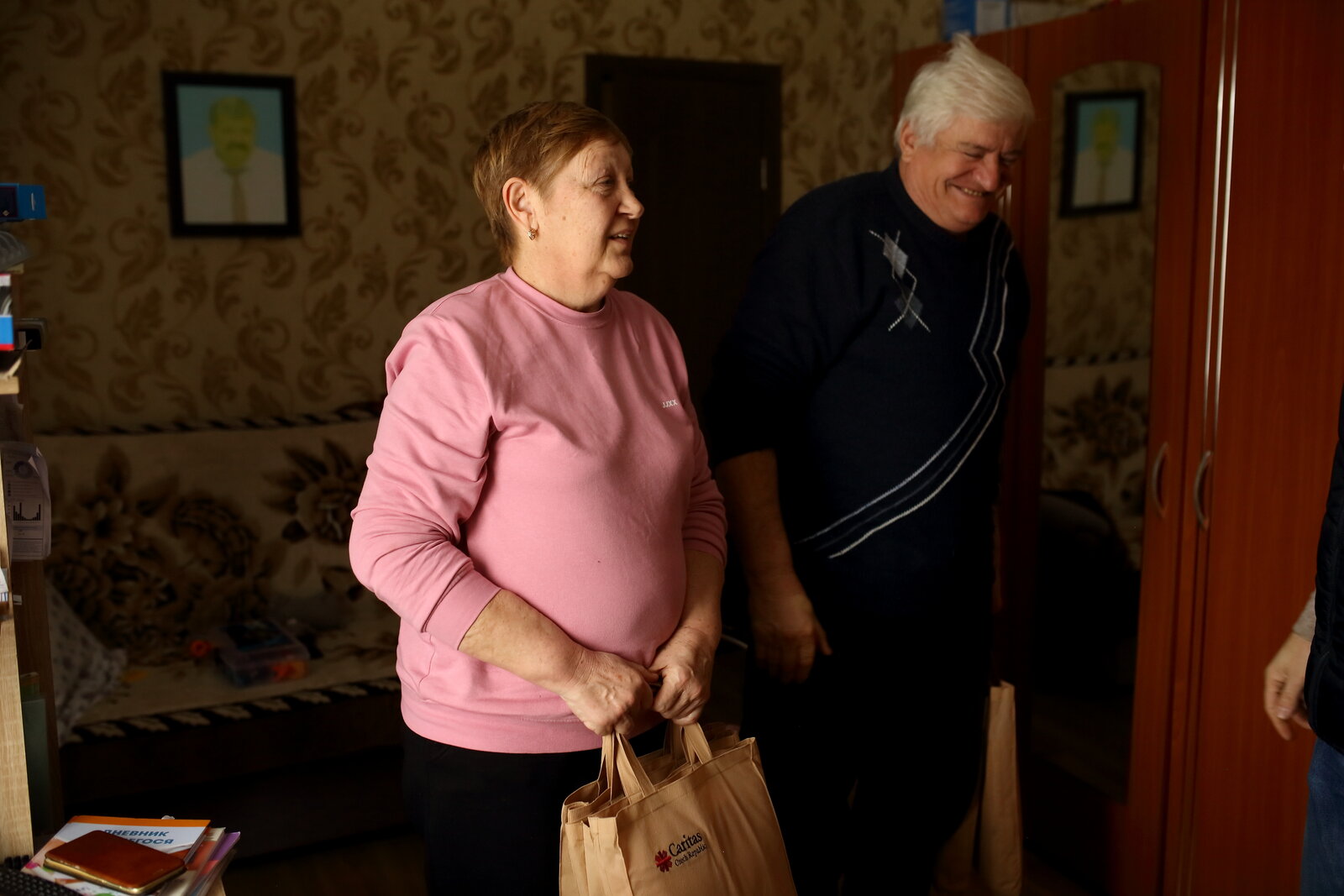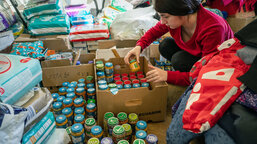Lilia and Andrii Lykov are a retired couple from Kharkiv. Andrii worked in his youth as a subway builder. Now they fled the war in Ukraine and took refuge in Moldova. They came in search peace and quiet 1,200 km away from their home. They remember through tears their happy days in the city of Kharkiv, in Saltivka district - the largest residential area in Ukraine with a population of around 300,000 people.
We thought winter was ending, but the war was starting
Lilia and Adrii's life before the war was happy. "We lived in a three-bedroom apartment on the 10th floor of a 16-storey block. We often went to our nearby villa - we had an orchard and a vineyard there. In our garden we grew everything that can grow in the Ukrainian climate. We finally started to enjoy the quiet days after a lifetime of work,” Lilia told us with tears in her eyes.
"On February 23, 2022, it was unusually warm outside. You could already feel a breath of spring," says Lilia's husband. "So when we heard the first bombs at 5 A.M., I told my wife that it was the first thunder and that it meant the winter was over."
The "thunder" was getting closer and louder, and when the first windows cracked, Lilia and Andrii realised it was actually explosions. They approached the windows, and what they saw left them speechless - their neighbourhood was on fire.
The bombing continued and got worse every day. "In a few days our neighbourhood was all in ruins. Schools and kindergartens destroyed, houses from the front line completely ruined, even blocks of 16 stories."
The rule of two walls
During those days, Lilia and Andrii were staying in their apartment, following the "two-wall rule", which says that if you are in an apartment and in danger, you must lie down between two supporting walls without windows. At night, the Lykov family took refuge in the nearest subway station. "I never thought that the subway galleries I built in my youth would serve as a shelter for thousands of Ukrainians fleeing the war in the 21st century," Andrii tells us.
The Lykov family did not want to leave Kharkiv, they did not want to leave everything they had earned in their lives. Not even the lack of food could persuade them to leave everything behind.
Lilia's husband in his youth helped to remove the consequences of the Chernobyl nuclear accident: „After fighting with radiation in Chernobyl, I thought I had seen everything in my life”, said Andrii.
When the tanks started rolling down their street, they decided it was time to leave. Hoping that the war would not last long, they decided to take refuge in Moldova, closer to their homeland.
Only one wish - to return to sweet home
The journey to the city of Comrat in Moldova took them three days. "We were not sure if we would be able to evacuate. The missiles were flying right above us. When we entered Moldova, we saw the generosity of the local people who rushed to help us. Right at the border there were hundreds of volunteers ready to help us at any moment. It is true when people talk about Moldova as a small country with a big heart,” Lilia is recalling.
On 7 March, it was one year since Lilia and Andree have been living in Comrat with their daughter Olga and grandson Dmitrii. They still feel the after-effects of the bombing days. Thy still flinch when a big truck passes on the street, and their grandson hides when the heating system is turning on.
"When we left for Moldova, we did not know how we would survive in a foreign country. We did not know there was aid for refugees. When we got here, Caritas Czech Republic provided us with all the financial and moral support we needed and helped us to live in dignity. Thanks to humanitarian aid, we are not starving, we have a roof over our heads and our psychological wounds are slowly healing. Now we have only one wish - let there be peace and we will return home, to our beloved Kharkiv," says Lilia.
Since the beginning of the war, Caritas Czech Republic has supported about 15,000 Ukrainian refugees in Moldova, provided cash support to more than 2,000 refugees, offered more than 3,400 psychological consultations, distributed about 4,000 bags of essential hygiene products and supported around 2.000 refugee with winterization aid.










